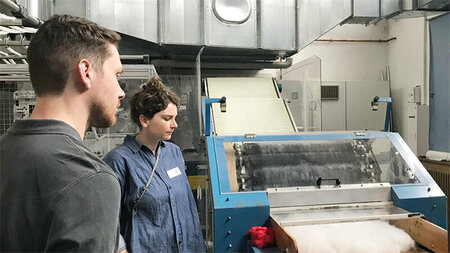Chemnitz Economic Papers
Working Papers
Building Climate Coalitions on Preferential Free Trade Agreements
Thomas Kuhn (thomas.kuhn@wirtschaft.tu-chemnitz.de),
Radomir Pestow (radomir.pestow@wirtschaft.tu-chemnitz.de) and
Anja Zenker (anja.zenker@wirtschaft.tu-chemnitz.de)
Additional contact information
Thomas Kuhn: Department of Economics, Chemnitz University of Technology
Anja Zenker: Department of Economics, Chemnitz University of Technology
No 11, Chemnitz Economic Papers from Department of Economics, Chemnitz University of Technology
Abstract: In this paper, we discuss the endogenous formation of climate coalitions in the tradition of the issue-linkage literature. In particular, we propose a preferential free trade agreement on which a climate coalition should be built. The basic idea is that the benefits of free trade provide strong incentives for free riders to join the coalition. As a framework, a multi-stage strategic trade model is used in which a country may discourage greenhouse gas emissions by setting an emissions cap effective on a permit market. In addition, a discriminatory import tariff is imposed on dirty goods. However, at the heart of our approach are the trade privileges granted to coalition members shifting the terms of trade favourably without prodiving incentives towards eco-dumping. As a main result, we find that trade liberalisation is much more effective in building climate coalitions than a single-issue environmental agreement. The parametrical simulation of the model in particular shows that participation in joint emission reduction is higher, consumption patterns are more environmentally friendly, and coalitional welfare is improved. As a policy implication, negotiations on climate treaties and free trade arrangements should be integrated.
Keywords: Climate Change; International Environmental Agreements; Free Trade; Issue Linkage; Tradable Permits; Strategic Trade Policy (search for similar items in EconPapers)
JEL-codes: Q54 Q56 F18 F15 Q58 (search for similar items in EconPapers)
New Economics Papers: this item is included in nep-agr, nep-ene, nep-env and nep-int
Date: 2017-07, Revised 2017-07
References: View references in EconPapers View complete reference list from CitEc
Citations Track citations by RSS feed
Published in Chemnitz Economic Papers, June 2017, pages 1-35
Downloads: (external link)
https://www.tu-chemnitz.de/wirtschaft/vwl1/RePEc/d ... hn_Pestow_Zenker.pdf First version, 2017 (application/pdf)
Related works:
This item may be available elsewhere in EconPapers: Search for items with the same title.
Export reference: BibTeX RIS (EndNote, ProCite, RefMan) HTML/Text
Persistent link: http://EconPapers.repec.org/RePEc:tch:wpaper:cep011
Access Statistics for this paper






